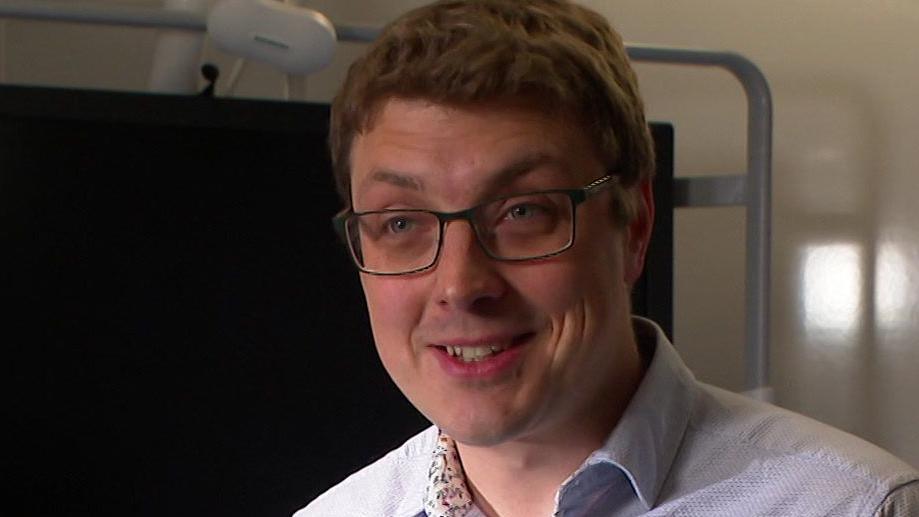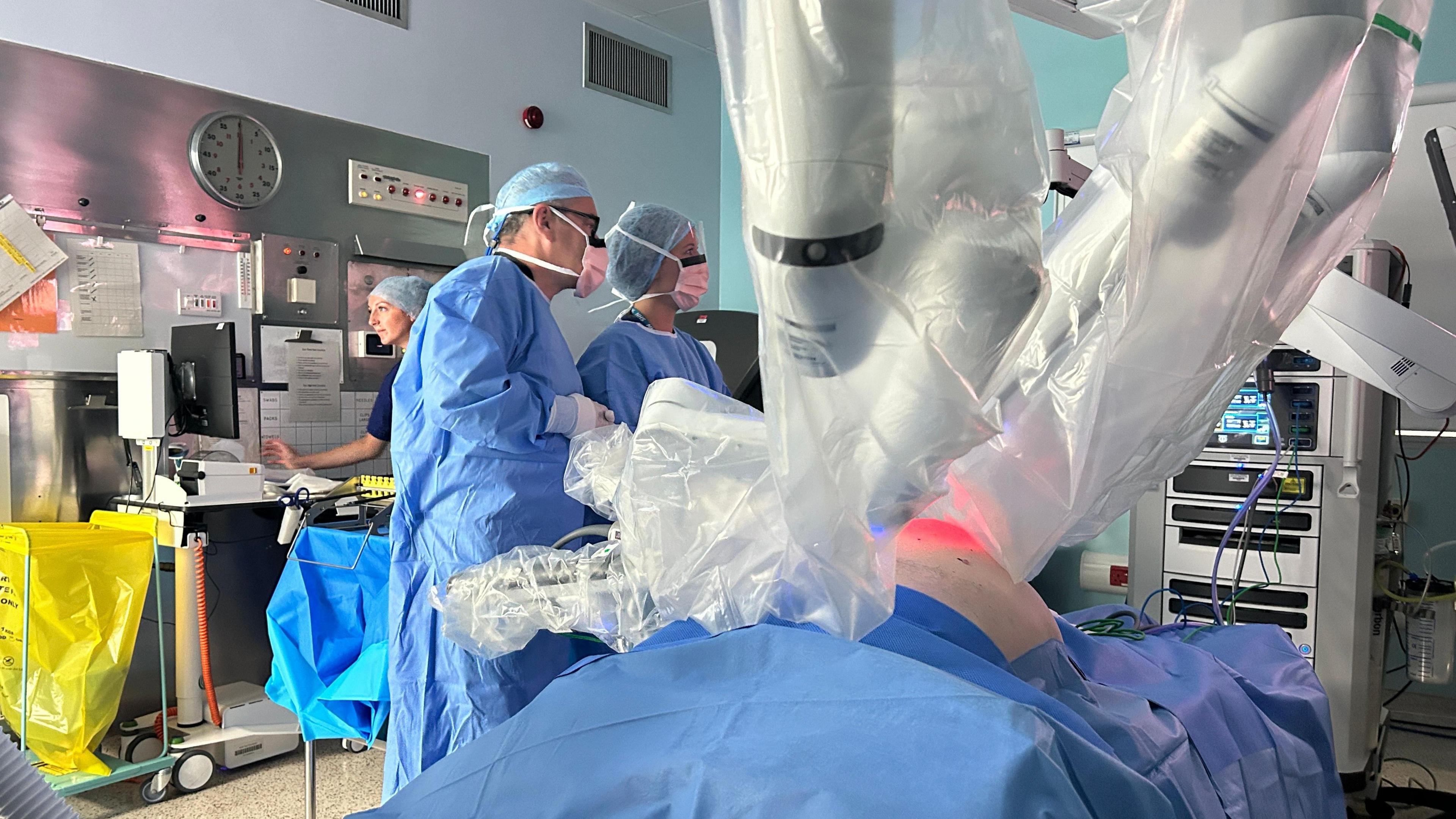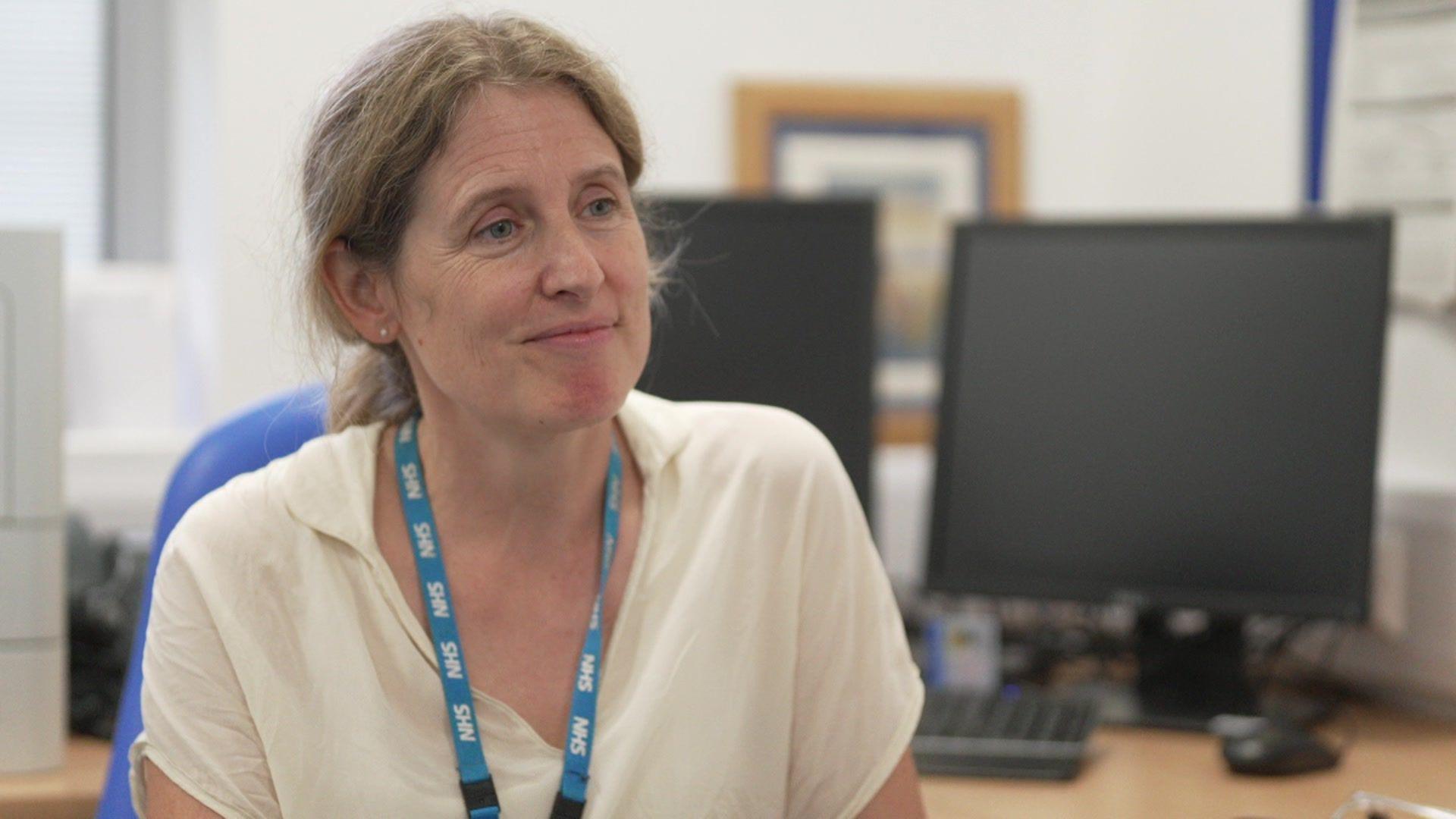Vascular care technology used in UK first - NHS

Paul Jenkins said the laser catheter helped unclog blood vessels
- Published
Patients have been treated with a new technology for vascular disease for the first time in the UK, the NHS has said.
The University Hospitals Plymouth NHS Trust said its new laser catheter, the Auryon System, would help it "provide better care" for its patients in the South West who have peripheral vascular disease (PVD) or peripheral artery disease, external (PAD).
The trust said vascular disease restricted blood flow in vessels which was caused by a "build-up of fatty deposits on the walls of the arteries".
Paul Jenkins, consultant in Interventional Radiology, said the first patient in the UK was treated by the new laser device at Derriford Hospital in July.
He said: "Up until now, we have only been able to treat patients with traditional angioplasty and stenting.
"This new machine will allow us to be more effective, utilising peripheral atherectomy techniques to remove the plaque build-up inside arteries in the limbs, particularly for patients who have lesions that have been resistant to other treatments, or who have symptoms that suggest recent blood clots."
The NHS said PVD affected about one in five men and one in eight women in the UK.
Consultant vascular surgeon Dev Mittapalli said the device could help prevent the loss of limbs.
He said: "Quite often, to be frank, it is because of the unhealthy lifestyle - it could be smoking, poor management of the blood pressure, poor management of diabetes, high cholesterol levels, lack of exercise.
"They all come under the category where you get damage to the arteries and where the calcium deposition causes the narrowing of the arteries."
Mr Mittapalli said staff were "encouraged by the early results".
He said: "It's quite amazing actually because the patients, when we see them they're really struggling and when they had the procedure, when you see them they're delighted that their symptoms are much better."
Follow BBC Devon on X, external, Facebook, external and Instagram, external. Send your story ideas to spotlight@bbc.co.uk, external.
- Published1 September

- Published23 April

- Published18 July 2024
